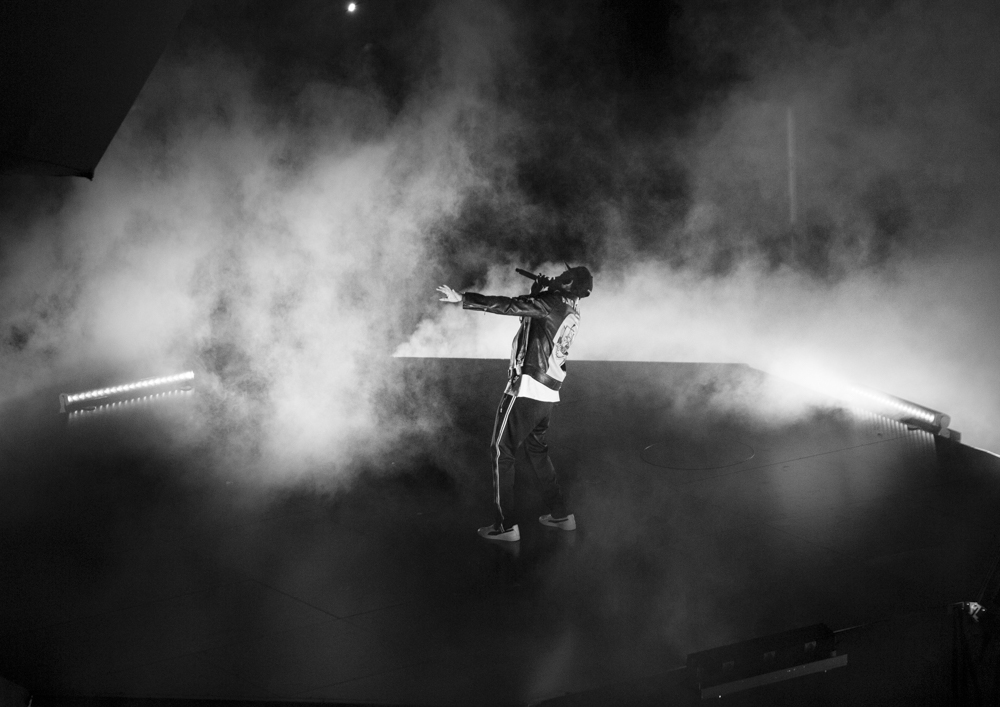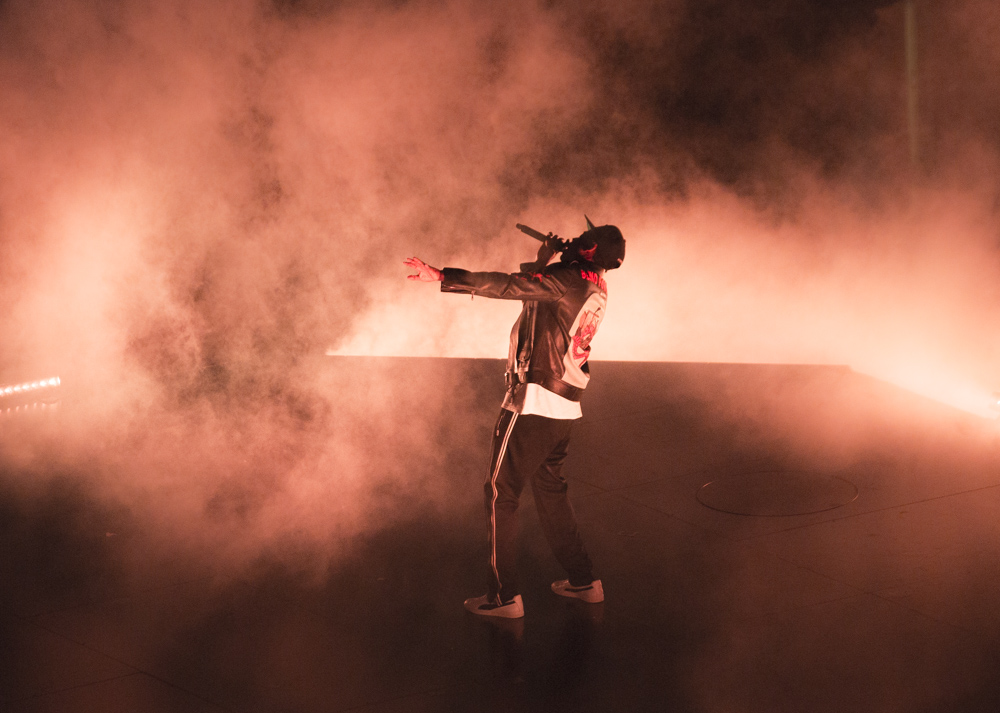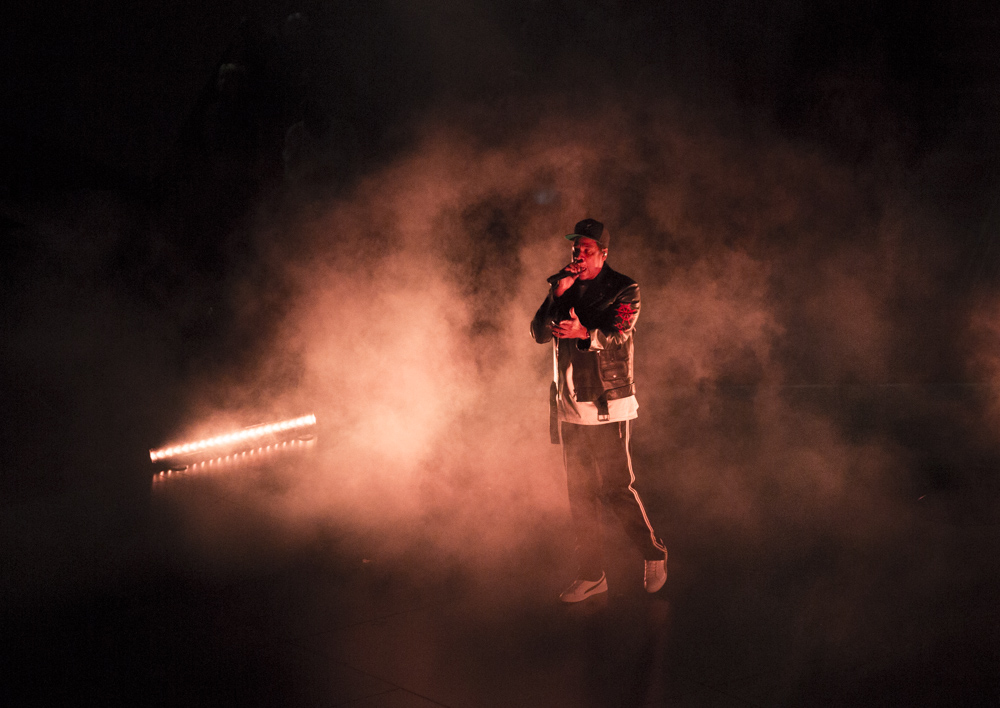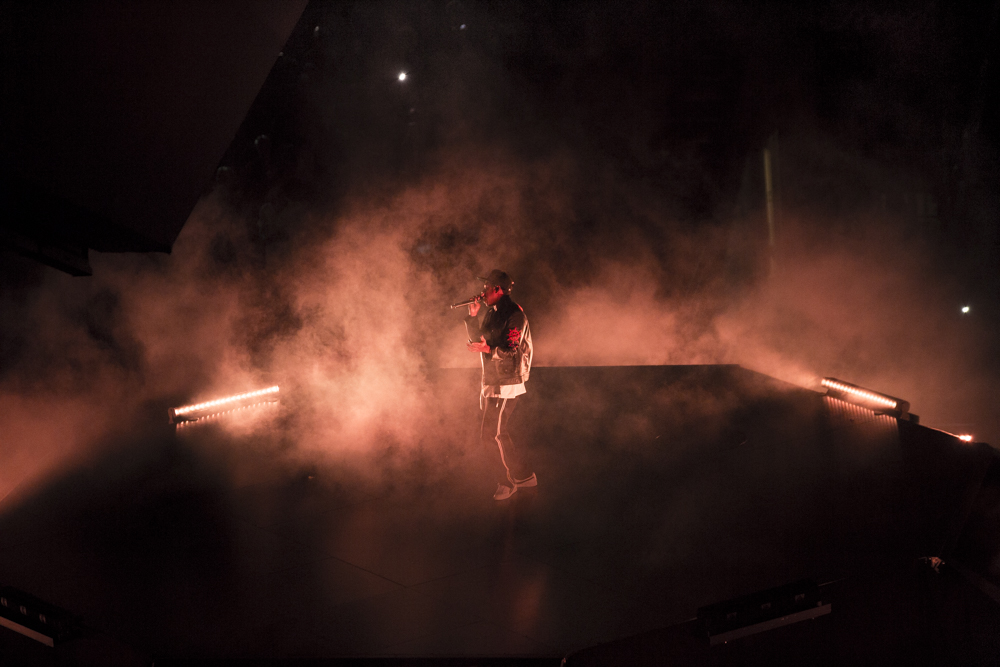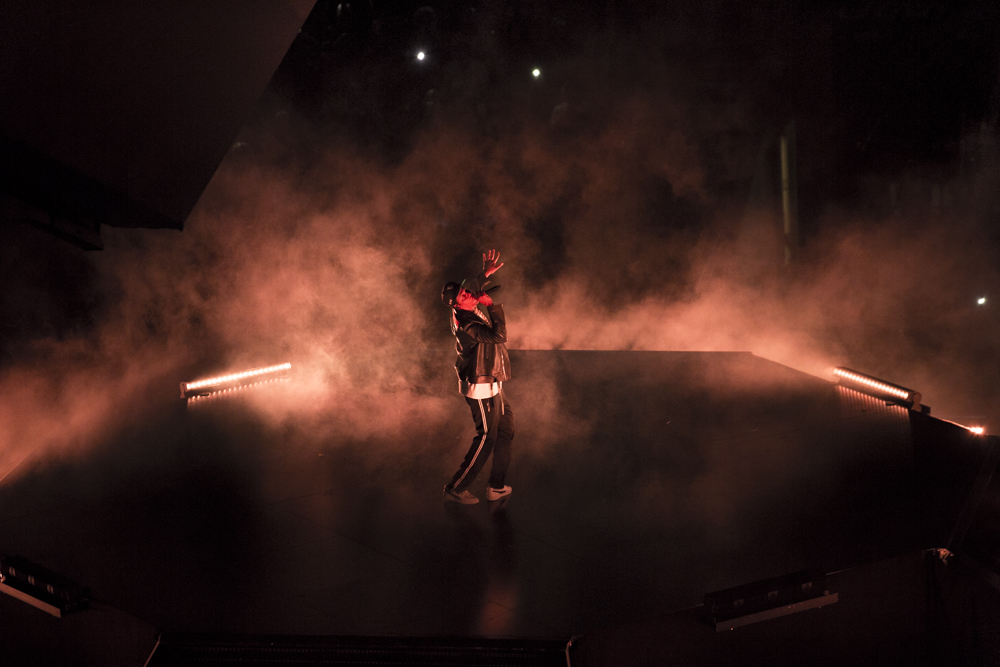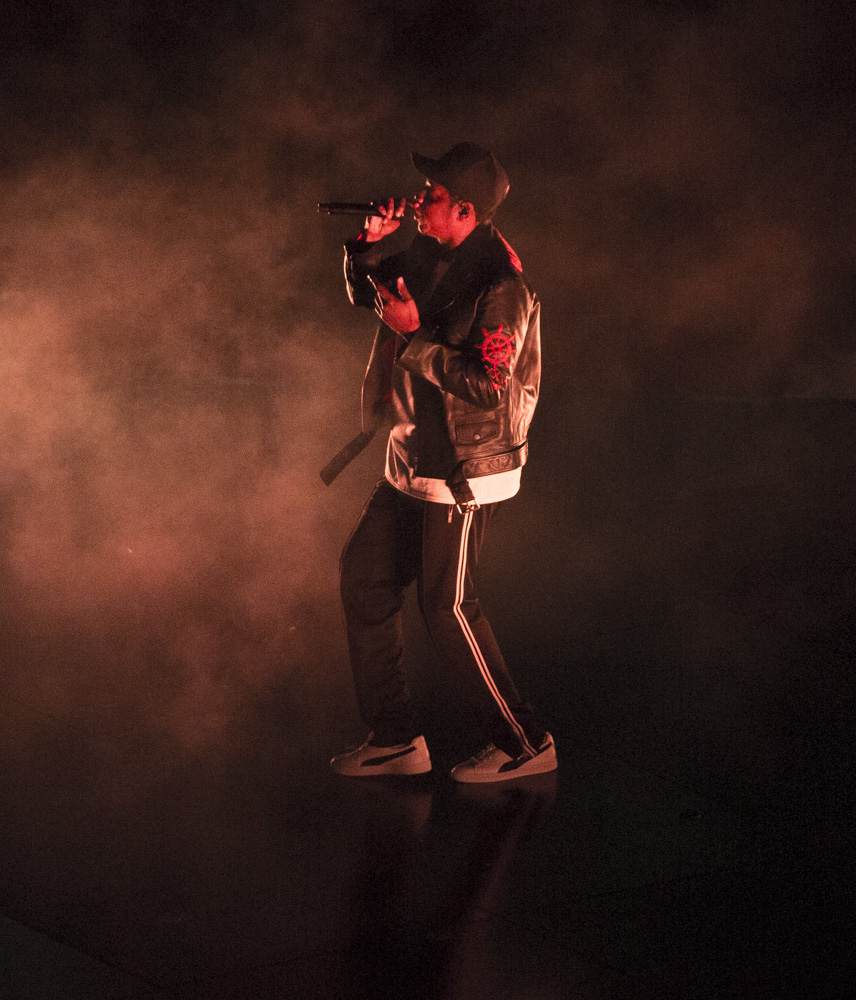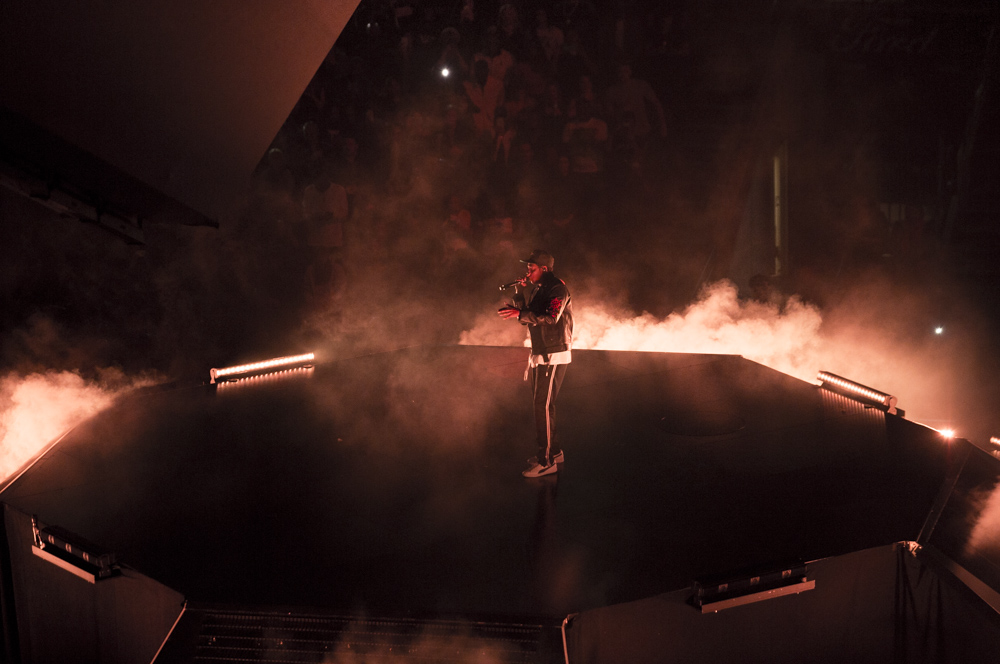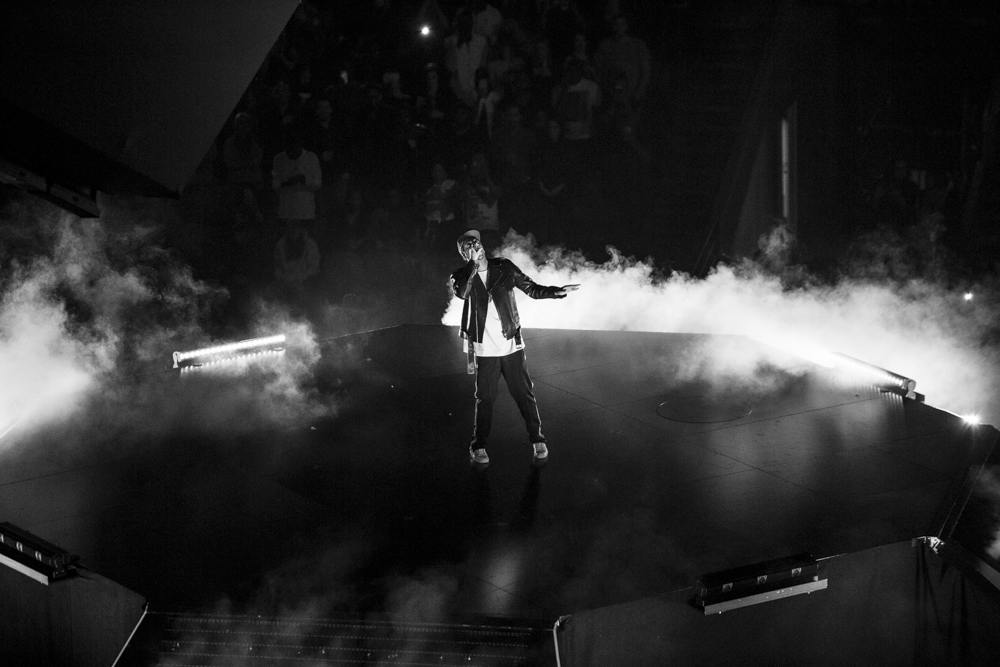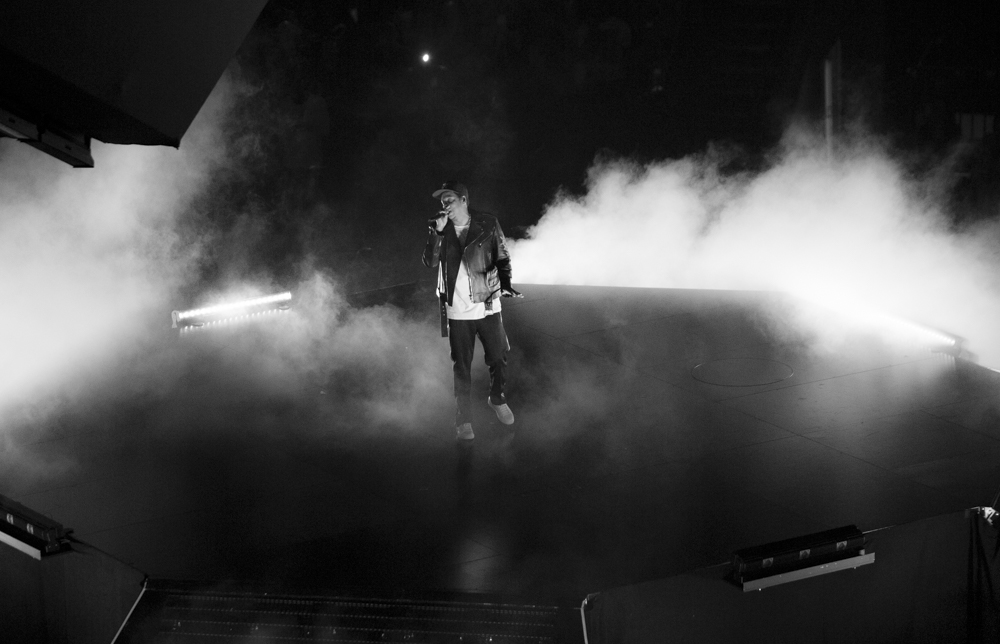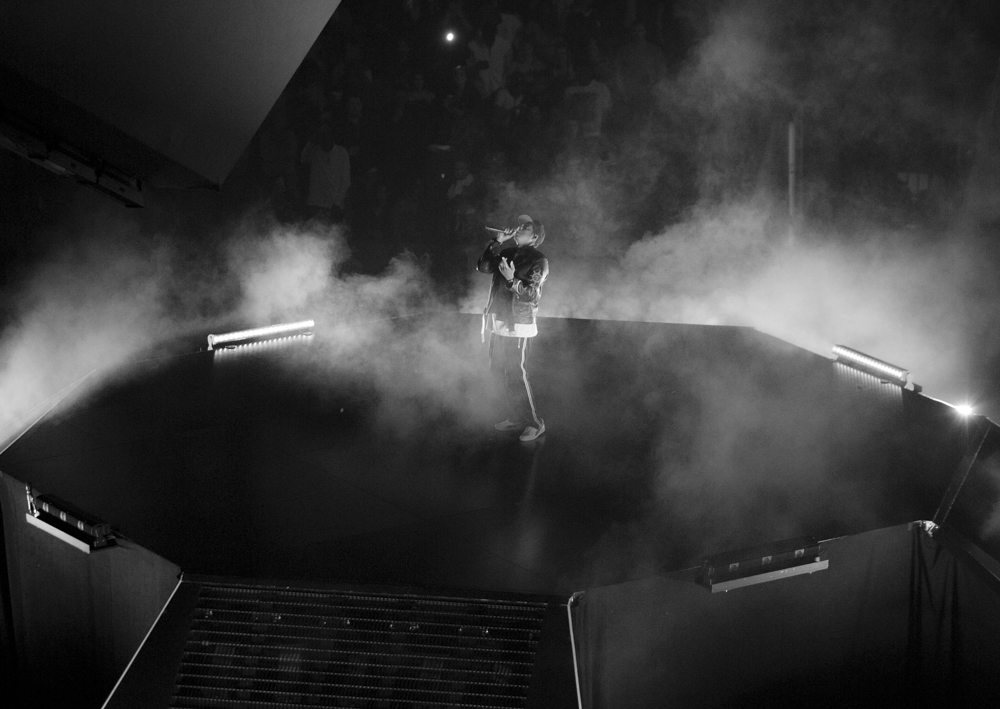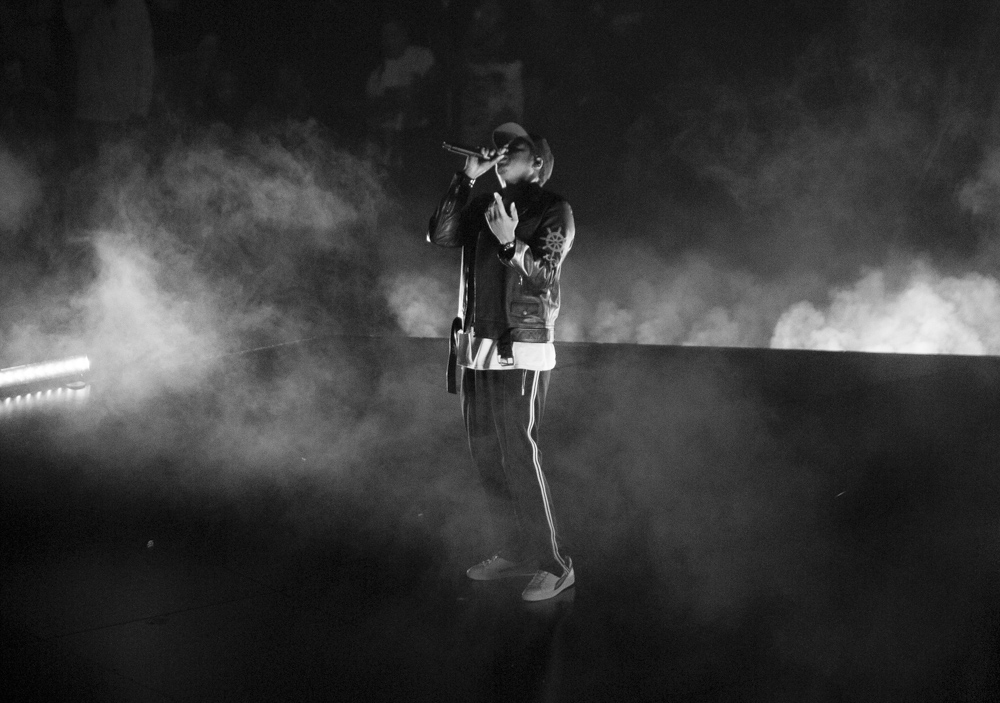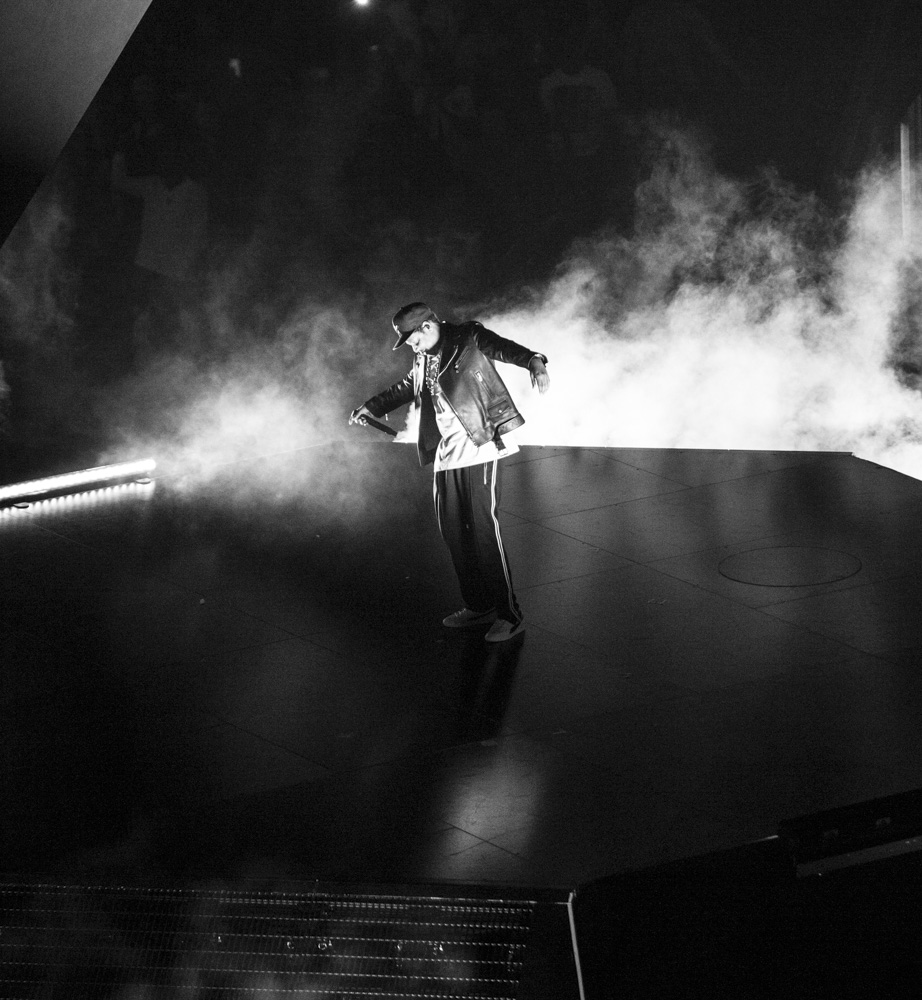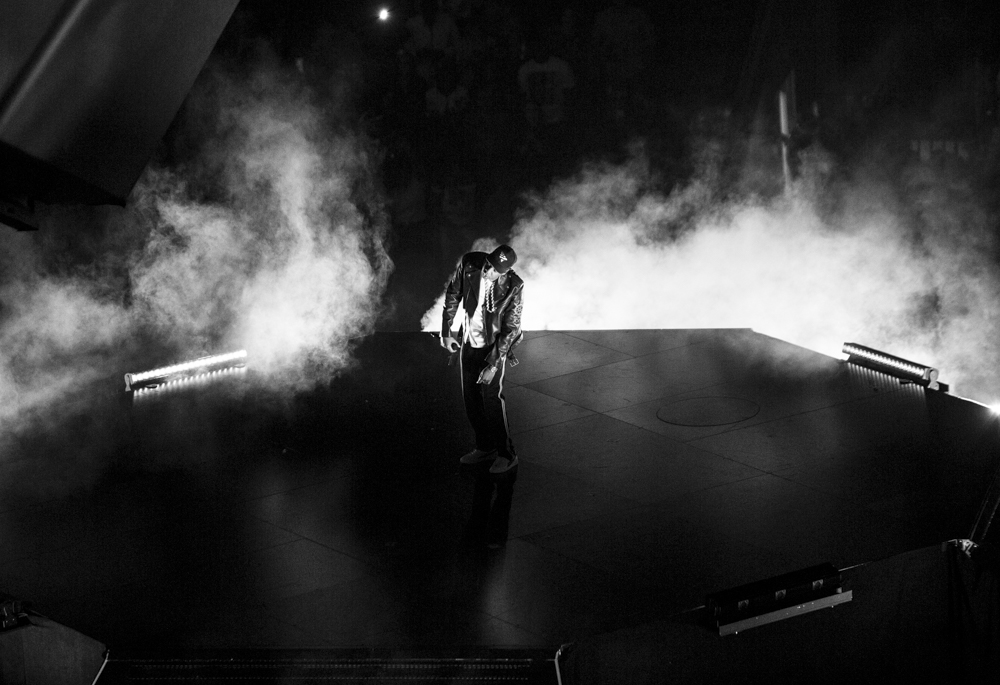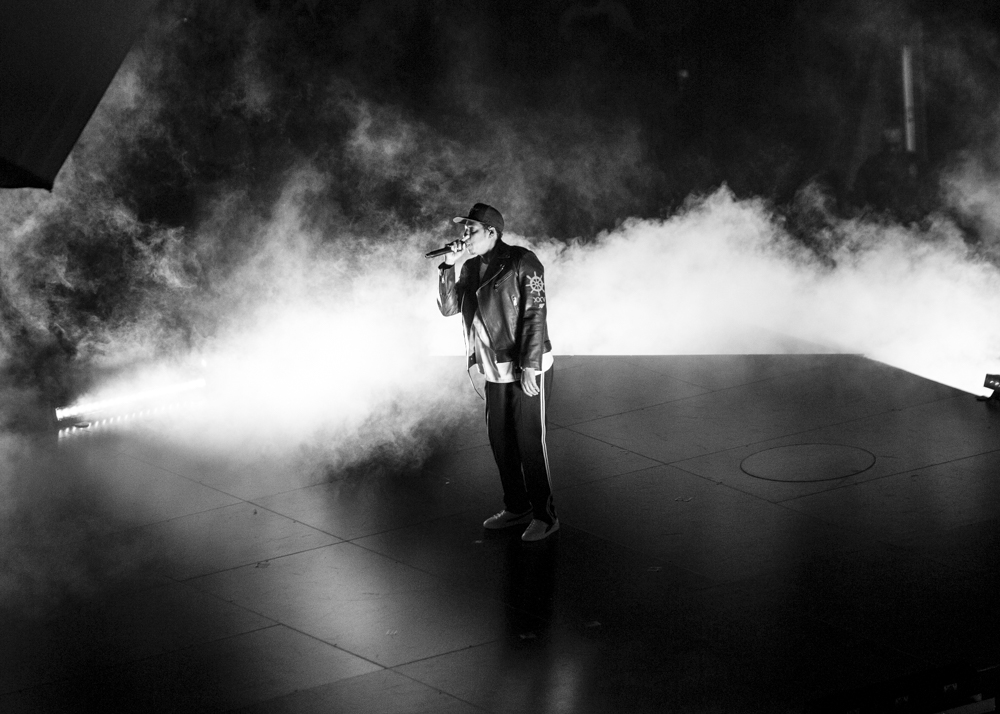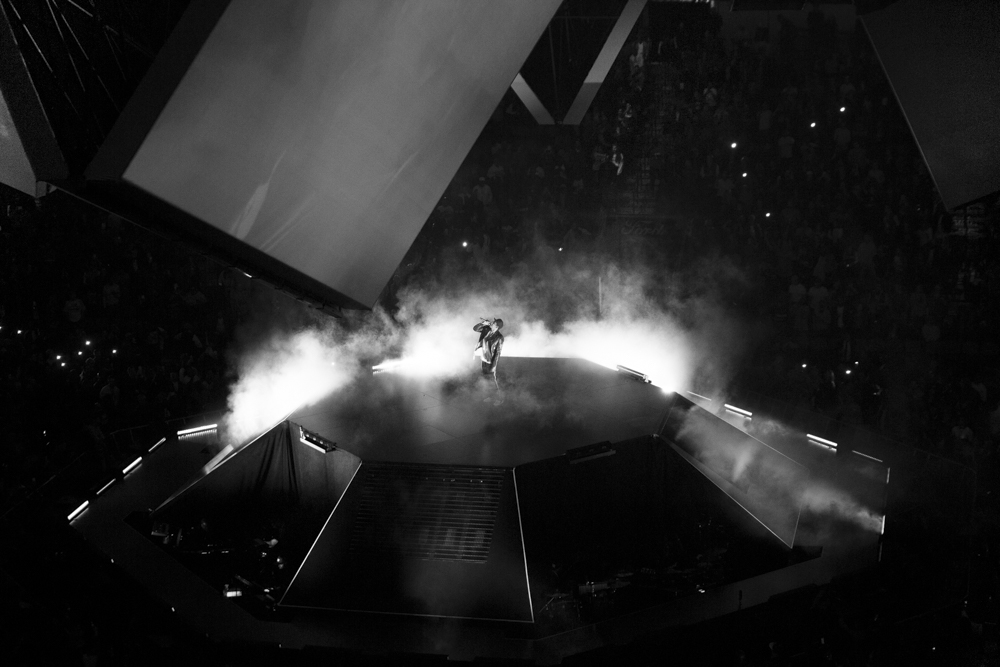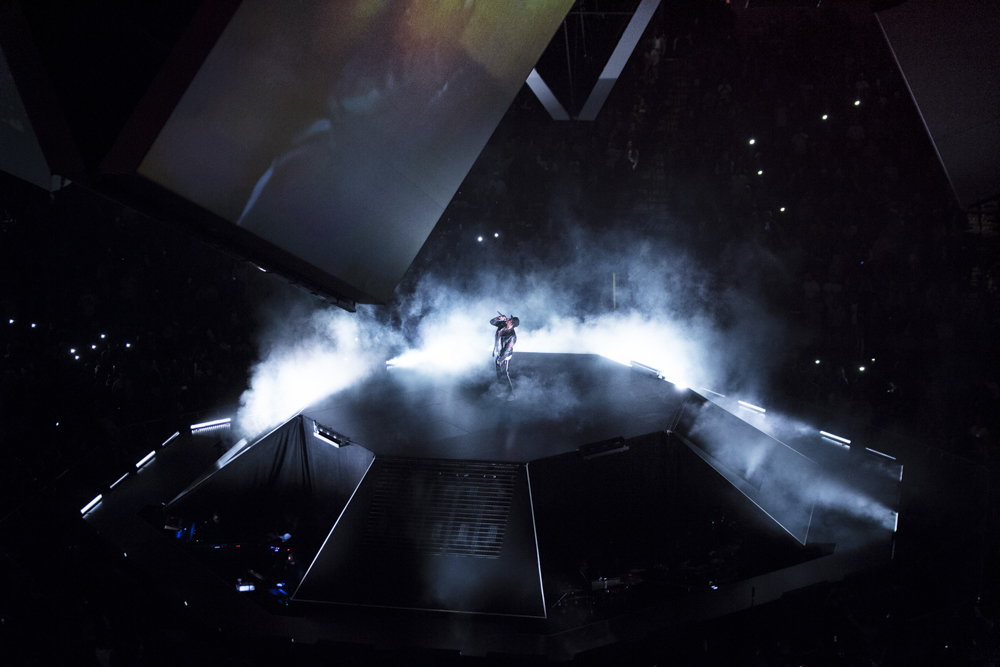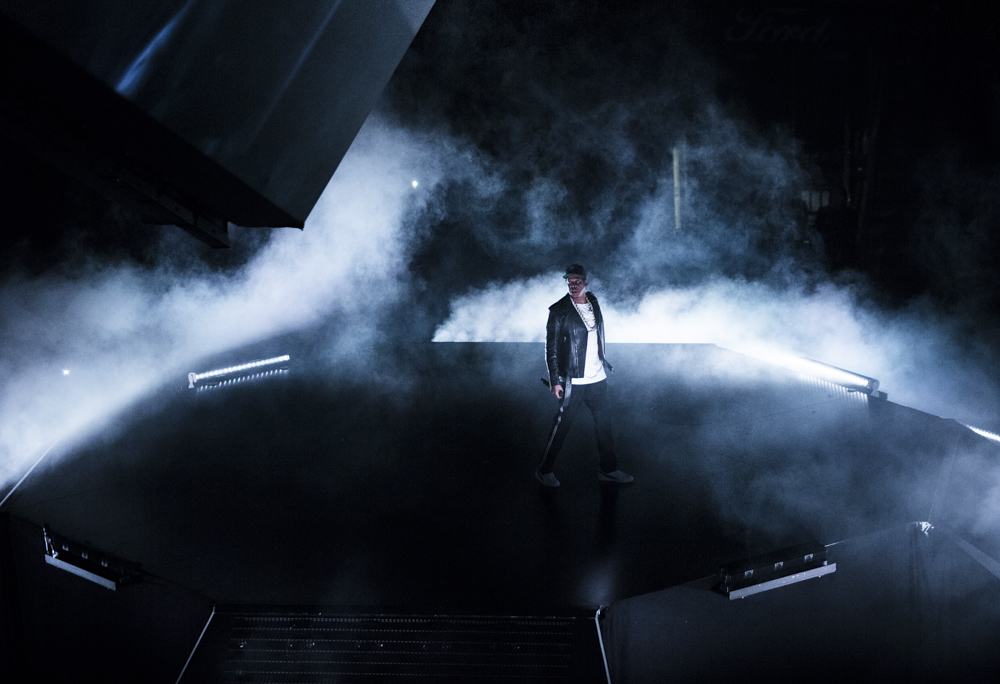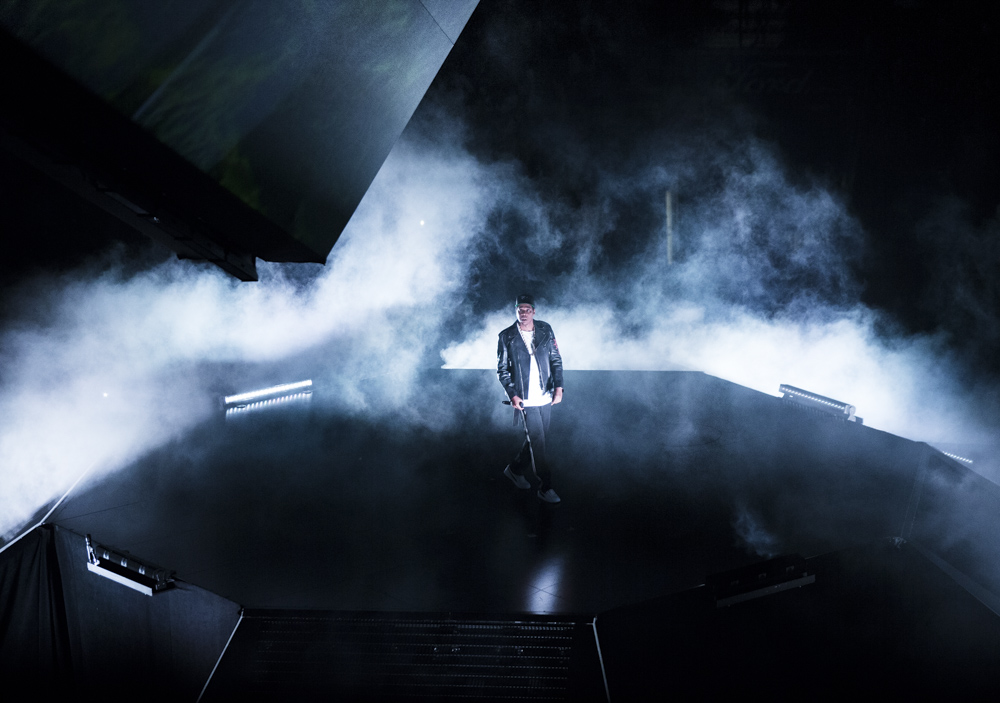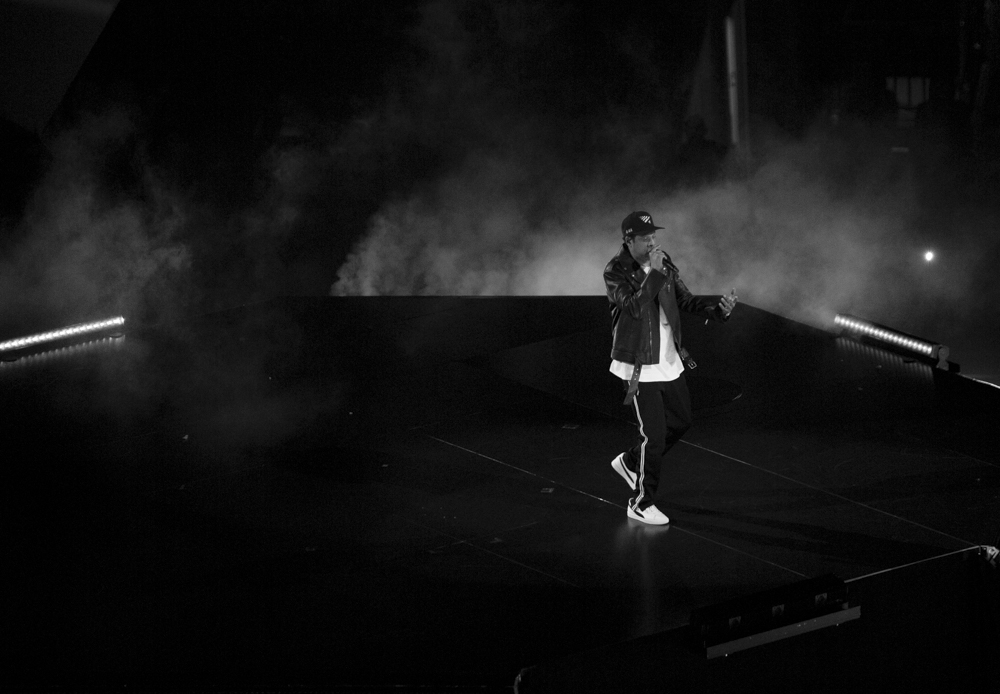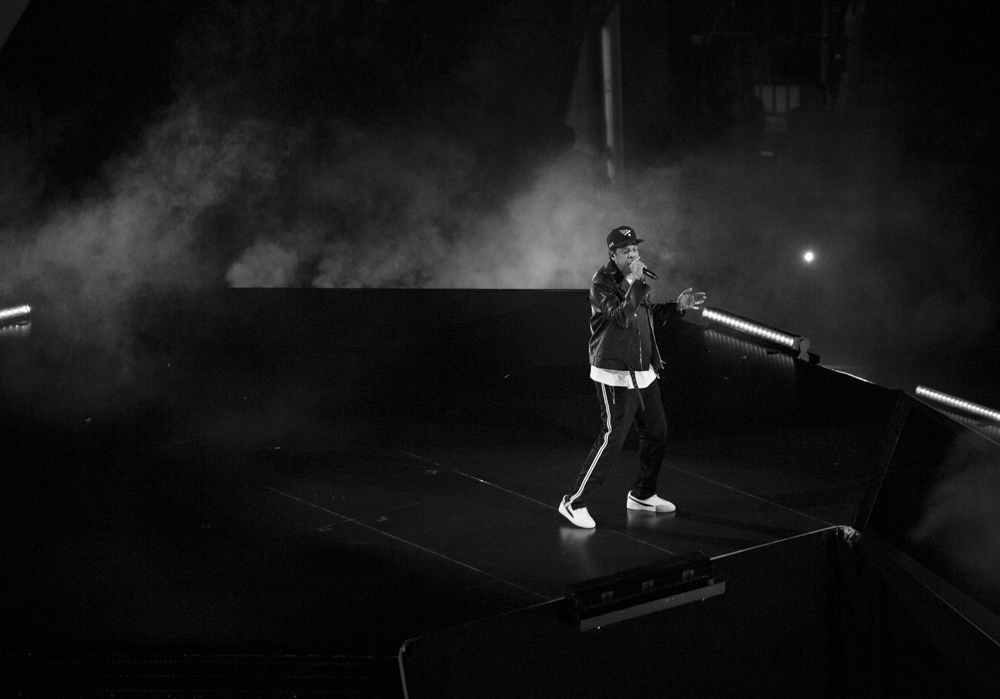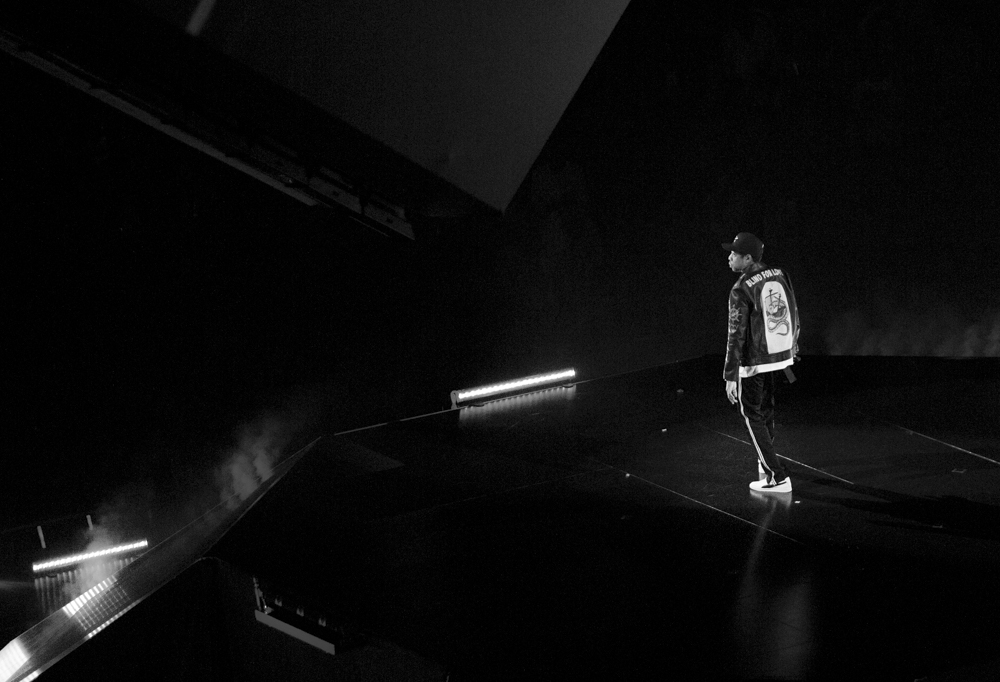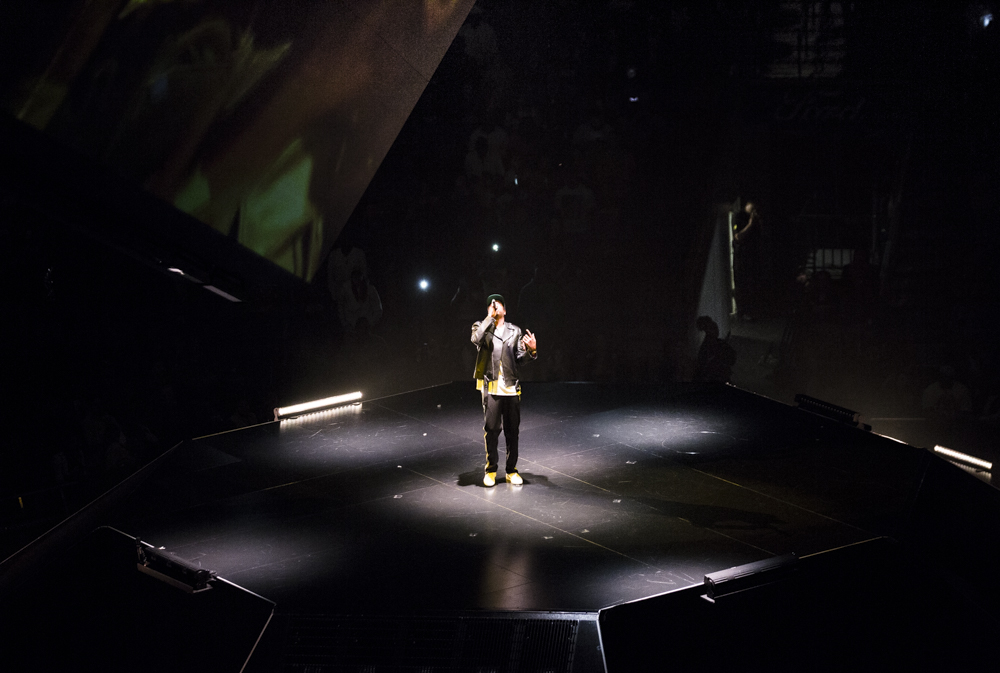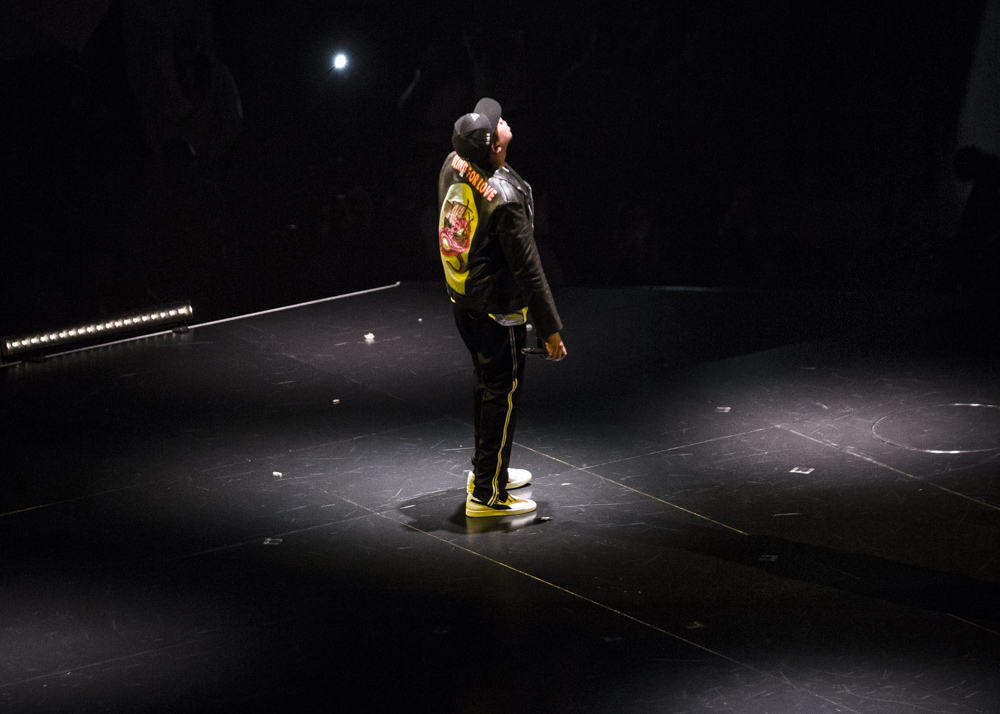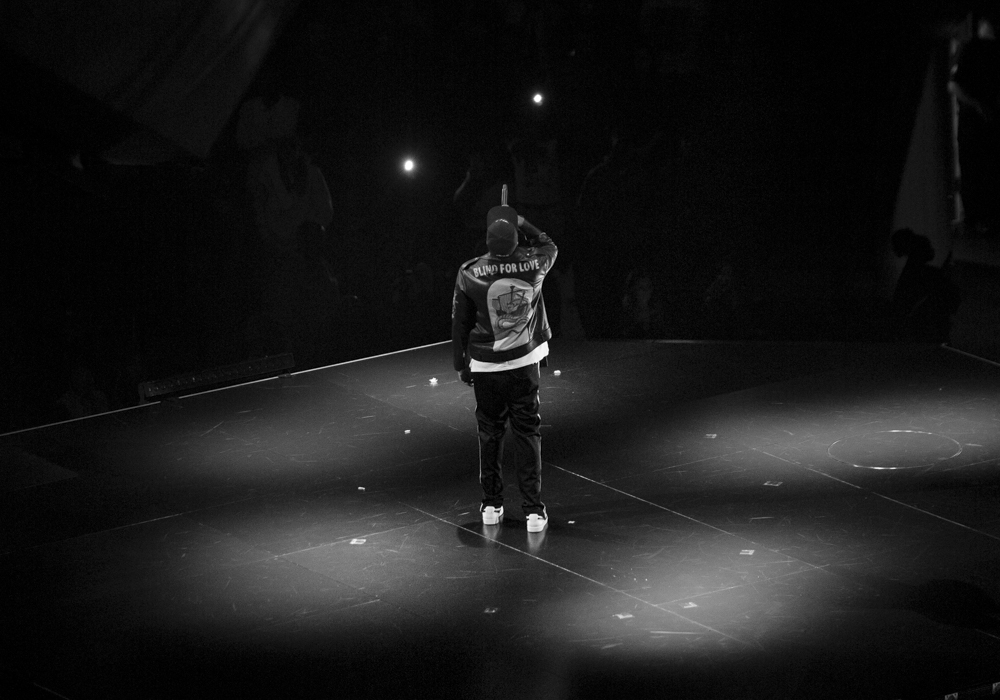Live Nation Maintains That Jay-Z’s 4:44 Tour Will Be His Highest-Grossing Run Ever. So How Come It Doesn’t Feel That Way At His Dallas Stop?
All photos by Breanna Loose.
Right at the end of Jay-Z’s performance at Dallas’ American Airlines Center on Tuesday night, just before he launched into his set-closing offering of his 2004 Linkin Park collaboration track “Numb/Encore” (which he dedicated to the late Chester Bennington), the 47-year-old rapper born Shawn Carter asked that everyone in the room take out a lighter or cell phone and illuminate the arena, with the majority of those in attendance obliging his request.
After spinning around his in-the-round stage set-up and taking a gander at the striking visual that surrounded him, the rapper couldn’t help himself from commenting on it.
“There’s a lot of motherfuckers in here for a tour that’s not selling,” he said.
An audible laugh rang out among the stands. Seems a significant portion of those in attendance at this show had been reading the news.
Since launching its run in late October, Jay-Z’s 4:44 tour has been the topic of much speculation — very little of it positive. Fans and rap blogs alike immediately picked up on the fact that tickets for the tour were being sold on secondary markets for as little as $6 a pop. Critics, also noticing this, began arguing that this was a surefire sign of poor sales, pointing out the fact that the self-proclaimed “best rapper alive” — a man who should be selling out arenas — was having trouble selling out his scheduled tour stops, even going so far as to cancel at least one early tour date. Almost immediately, concert promoter Live Nation, with whom Jay-Z recently signed an exclusive 10-year, $200 million touring deal, sniped back at those criticisms by claiming they are simply the result of a new model that they were trying out. Per their own numbers, Live Nation said, the 4:44 tour is actually on pace to become the highest-grossing tour of the rapper’s career.
Their explanation as to how that is all coming to pass through this tour is as follows: 1) In an effort to cut out the middle man, Live Nation is hiking up the prices of its most exclusive seats in an effort to put their prices closer to what they might be on the secondary market after scalpers buy and try to flip them; 2) Also in an effort to cut out scalpers, Live Nation is dropping its upper-level seat prices significantly, forcing secondary markets to sell their seats for as little as, say, $6 and take a loss in the process in order to just get in on the game; and 3) Live Nation is intentionally holding back tickets throughout its venues — as many as 10 percent of its seats — for sale at the box office on the day of the show, again in order to fight scalpers.
Every step of this process, it’s clear, is meant to cut the secondary markets out of the formula, thus ensuring that all of the money goes to a concerts’ promotional partners as opposed to any hangers-on.
Mathematically, the concept makes plenty sense. In practice, though, it’s a tougher pill to swallow.
For years, the entire concert industry has valued itself on the concept of a sold-out show, with venues often fudging numbers and handing out free comps — basically, just doing whatever they can — in order to be able to report that every seat in the room was accounted for so that a show could be claimed as a sell-out. Live Nation’s gamble with Jay-Z is that, rather suddenly, the concept of a sold-out show doesn’t matter — which it absolutely shouldn’t, not when compared to the bottom line, anyway. The issue is that this notion goes against everything the concert industry has stood for throughout its history. Jay-Z himself is guilty of this, too: When he raps of the fact that “[he] came, [he] saw, [he] conquered,” in “Encore,” he doesn’t boast about doing so “from record sales to profitable touring models,” he raps about doing it “from record sales to sold-out concerts.”
As both “a businessman” and “a business, man,” Jay-Z should be able to reconcile this and play the humble part required of the model, for which he should see the forest as opposed to the trees. So why, then, was Jay so focused on the turnout at the AAC on Tuesday night, commenting on it so explicitly? Probably because he couldn’t help himself. And because maybe, just maybe, Jay-Z doesn’t quite have everything as figured out as he’d like his fans to think he does.
Here are a couple of undeniable truths about last night’s show.
1. By the time the show was in full swing, it was a well-enough-attended affair, with somewhere just north of 80 percent of the available seats in the arena being used. “Available seats” is a key modifier here, though, as a quarter of the upper bowl was curtained off.
2. This was an incredibly late-arriving crowd, with fewer than 3,000 people in the area as opening act Vic Mensa performed on Jay’s stage set-up. After Mensa wrapped up his set at 8:40 p.m., the room started to fill up some — but slowly. At 9:15 p.m., 15 minutes after the media had been told Jay-Z would start his set, the lights in the arena dropped, cuing the headliner’s set’s beginning. At that point, the room was about 60 percent full. It wasn’t until about 20 minutes into the set that the venue reached its peak attendance for the night.
3. This was a pretty old crowd for a hip-hop show. Perhaps that’s to be expected given Jay-Z’s extended stay in the limelight. But compared to, say, the full, and rather youthful, house that Kendrick Lamar performed in front of in this same venue back in July, this crowd skewed significantly older — by about 10 years. It’s safe to say that the average age of the attendees at Jay-Z’s Tuesday night show was north of 30 years old.
What can be gleaned from these observations? Could it be that Jay’s clout is dwindling, even if his profits may be rising, as Live Nation argues they are? Let’s say that’s the case. Next question: Is that so bad?
To Jay-Z, yeah, it would be. It’s not just that this is a guy who lyrically gave himself the title of the best rapper alive; he genuinely appears to believe it, he certainly has the resume for it and he doesn’t seem too keen on relinquishing it.
At one point over the course of Tuesday’s set, during which he alternated between chant-along conductor and deliberate wordsmith, he marveled aloud at the run of hits he’d just performed — one that included “Izzo (H.O.V.A.),” “Dirt Off Your Shoulder,” “On to the Next One,” “I Just Wanna Love U (Give It 2 Me)” and “Public Service Announcement.”
“I got a million of these!” he exclaimed, rather exuberantly.
Figuratively, anyway, he definitely does. But the set list made that case for him. Similarly, the adoration that this crowd — an exuberant and large number, but not a sell-out — gave him on this night too should’ve been plenty of affirmation.
Of course, this is Jay-Z we’re talking about. He slings clothes, liquor and music streaming services. He’s owned (and sold) a sports franchise and even owns a sports agency. And, on 4:44‘s “Family Feud” earlier this year, he outright said “fuck rap, fuck crack cocaine,” implying that eschewing his past and expanding his portfolio was the key to his future, the integral part to his becoming the first icon to age gracefully in a style of music that, either due to its youth as a genre or to its heroes’ often tragic ends, hasn’t ever really seen anyone stick around long enough to try.
But could it be that, more than his fans, it’s him that he’s trying to convince of this?
There is, after all, a reason why the guy couldn’t stay retired. And, watching him perform at the AAC on Tuesday, it was obvious what a treat it was that he never really left the game — if only for the moment in which he cut the beat to “Big Pimpin'” and rapped along a cappella to Pimp C’s “Now what y’all know about them Texas boys?” line as his Dallas fans gleefully scream-shouted those words back at him. Really, the whole night was a delight in this regard. It was the kind hit-filled classic rap show that only really comes a city’s way about once a year.
No one, least of all himself, wants to see Jay-Z be less than the rap — and, let’s just be real here, music and pop culture — icon that he fought his way toward becoming. But change inevitably comes, no king reigns forever and the way in which royalty relinquishes the throne matters just as much as how it ascends to it.
If this means that Jay-Z’s kingdom from here on out becomes more about its paper than its population figures, so be it. His lyrics and actions have been hinting at this change for years.
So why, then, is Jay-Z having such trouble actually committing to this next chapter? The answer didn’t necessarily rear its head at the AAC last night.
But, one day soon, it will. And while that’ll be a sad day, this much seems certain: Even if Jay-Z isn’t prepared for it, everyone else will be. Because in rap, as in real life, words still have meaning.

